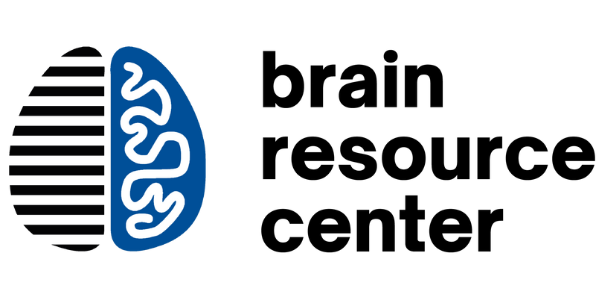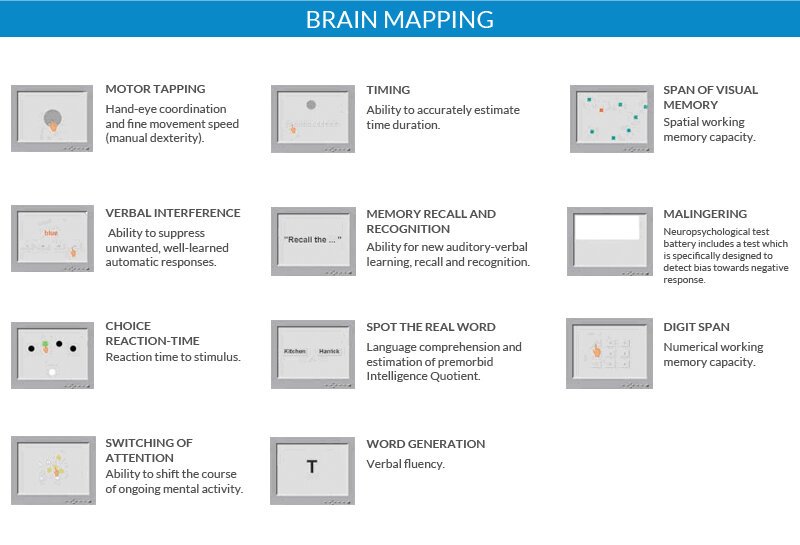Assessments at Brain Resource Center
#1
Intake Consultation
#2
qEEG Brain Map
#3
Neuropsych Evaluation
INTAKE ASSESSMENT
Your first visit will be an intake assessment. During this 40-45 min session with our clinical psychologist, you'll engage in an in-depth discussion about your symptoms, medical history, goals, and pertinent diagnostic information. This allows us to attain a comprehensive understanding of your health, circumstances, and needs.
Please note that we require an intake session before we conduct any other assessments. This is necessary to determine which assessments are needed and are the right fit for you. Each individual is assessed on a case-by-case basis and tested using clinical scales that are specific for their sex, age, and condition.
qEEG Brain Map
After your intake assessment, the next step is a qEEG brain map assessment.
A quantitative electroencephalography (qEEG), also known as a brain map, is a way of gathering detailed data on the electrical activity of the brain.
The brain functions by passing electrical and chemical signals between individuals cells, or neurons. This electrical activity is measured and recorded in detail by placing electrodes with conductive gel in strategic locations on the scalp and face. It is 100% safe for everyone. There is no use of electricity or anything of that nature. The only thing you will feel on your head is some stickiness from the gel we apply.
This data will then be analyzed by our trained psychologist and compared against the Brain Resource International database, which has extensive data from similar assessments, including profiles of healthy, normative brains. This allows us to identify specific imbalances/abnormalities of brain activity in different regions of the brain. With this information, we design a personalized treatment protocol, targeted at correcting the specific issues and imbalances we’ve identified.
Neuro-psychological Evaluation
The neuropsychological evaluation is important for assessing cognitive functions that are critical to daily functioning and overall well-being, such as attention, memory recall, processing speed, executive functions, etc. The evaluation consists of a series of computerized tests, where you are presented with a variety of tasks and challenges that target and measure different aspects of cognitive function. This is a standardized and objective way to measure cognitive abilities, allowing us to identify strengths and weaknesses, track changes over time, and develop targeted interventions or treatment plans.
Why are these assessments important and necessary?
✔ Provides critical diagnostic information and guidance for developing targeted treatment
✔ Serves as a baseline that can be used to compare and measure future improvement from treatment
✔ Allows for insight into your brain and cognitive functions for more effective, personalized treatment plans
Our Assessment Process
-
Please be advised that your assessment appointment will last approximately 1-1.5 hours. If you are completing the qEEG brain map, we ask that you abstain from smoking, caffeine and alcohol intake at least 6 hours before your appointment. Additionally, we ask that you wash your hair with shampoo ONLY, and do not use any chemicals in your hair on the day of the brain mapping. Conditioners, gel, mousse, and other hair products may interfere with the results that we obtain. You will receive a full list of instructions as well as information on what to expect once your appointment scheduled.
If you are only completing the neuropsychological evaluation, the preparation mentioned above is not required. Simply get a good night’s rest, eat a nutritious meal, and bring your brain with you!
-
We compare data from your assessments against a database with standardized norms and development of visual maps and brain topographies (identifying areas of disturbance in the brain).
-
After analyzing the data from your assessments, we will review the test results with you and develop a personalized treatment plan based on the results, your cognitive profile, your symptoms, treatment goals, and lifestyle.
It is often recommended that a re-assessment be taken in 6 months to look at objective changes in brain, progress of cognitive functions and to refine next phase of treatment.


